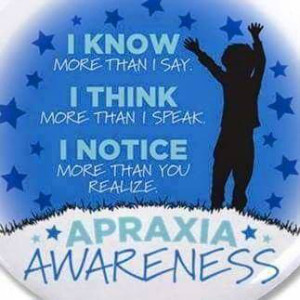As I stood in church one recent Sunday singing a familiar chorus, one line in particular jumped out at me. Tears of gladness filled my eyes as I sang “Mourning turns to songs of praise / Our God saves, our God saves.” I began to fully realize that I have, largely, exited the chapter of mourning the absence of communication with Sophie. I am overflowing with joy because she is finally using speech to communicate. I waited three and a half years to hear her speak. It was a long wait. So, it’s taken a long time for my heart and mind to finally realize that the wait is over.
It. Is. Over. Sophie can talk!
The words of this song washed joy over my heart, and I turned to a familiar Scripture containing the image of sorrow turned to joy. Phrases from Jeremiah 31 leapt off the page at me, their truth resonating in so many ways with this journey I have been on:
“‘But I will restore you to health and heal your wounds,’ declares the Lord.
‘I will turn their mourning into gladness; I will give them comfort and joy instead of sorrow.’
‘Restrain your voice from weeping and your eyes from tears, for your work will be rewarded,’ declares the Lord.
‘So there is hope for your future,’ declares the Lord.
‘Just as I watched over them to uproot and tear down, and to overthrow, destroy, and bring disaster, so I will watch over them to build and to plant,’ declares the Lord.”
For so many months and years, I’ve carried a heaviness with me because of Sophie’s reality. Most of this has been tied up in a desire to hear her speak. The older she got, the more evident her speech gap became, and the more my heart bled. It’s been so hard to see my baby struggle. I was so worried (yes, I confess, Lord) that she would never speak, or that it would take years for her to add words to her vocabulary. I read many stories of apraxic children who had taken private speech therapy for years and only gained a few words per year. The journey overwhelmed me. My heart mourned over what seemed lost to us in these silent years. As I sang that chorus on Sunday, my heart fully realized that the silent years are actually over. I can rejoice in what God has done in Sophie’s life. Because her transition to verbal communication has truly been miraculous. Yes, she is probably only 75% intelligible at home and maybe 25% intelligible to the outside world. But she’s only been speaking for five months. And she has literally hundreds of words. Hundreds. She knows every letter in the alphabet, every animal, every household object, every food item, names of significant people, places, and toys, and she can count to twenty. Her vocabulary development in five months is literally inexplicable and indescribable. I knew at her diagnosis that the apraxia journey could take us years for this kind of progress. Let’s just say I had lowered my expectations quite a bit. But why? It is, after all, an awesome God who is guiding her life.
I used to pray that Sophie would just wake up one morning speaking clearly in complete sentences. Well, that didn’t happen. But somewhere along the way in these last four years, God changed me. It wasn’t necessarily my circumstances that changed; but it was my heart. In each of the passages where the Bible gives images of sorrow turned to joy, God never promises that our circumstances will change. He just says that he will give us beauty instead of ashes, gladness instead of mourning, joy instead of sorrow. Those things are within us. They are not based in our circumstances. Nothing about our circumstances needs to change for us to embrace beauty, joy, and gladness. I have grown to trust God more as we have walked through Sophie’s story. And now I realize that this struggle has brought much more glory God than Sophie’s life could have without her struggle. We can rejoice in her amazing progress and praise God for this growth in her life. I wonder, would I really be able to see the beauty of all of this without the struggle? Would I praise the Lord as much as I ought to? I’m not sure. But as we celebrate Sophie’s entrance into the world of verbal communication, I know that my heart is singing praises to Jesus and my feet are moving to a song of gladness as we hear Sophie’s sweet voice in our lives.



